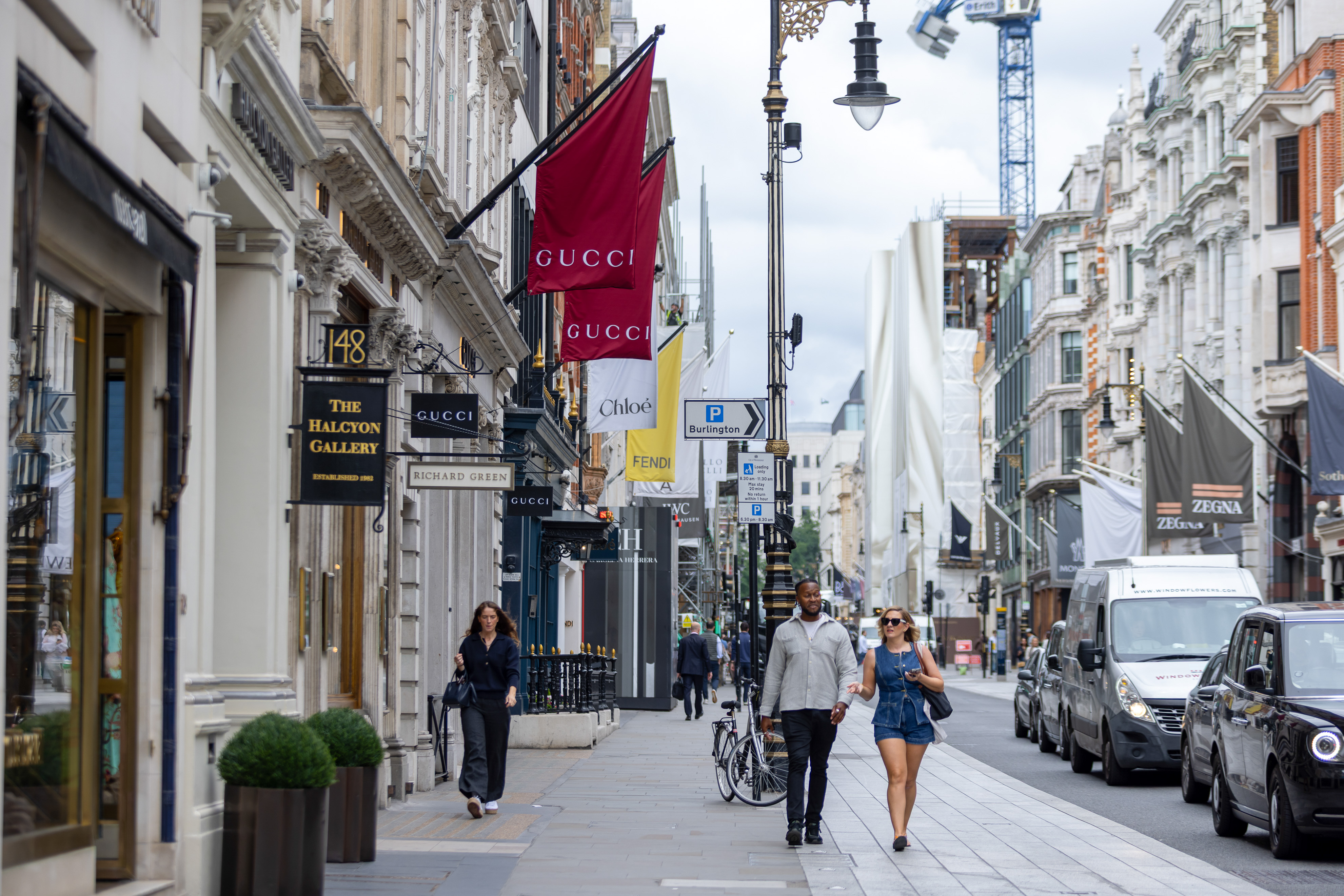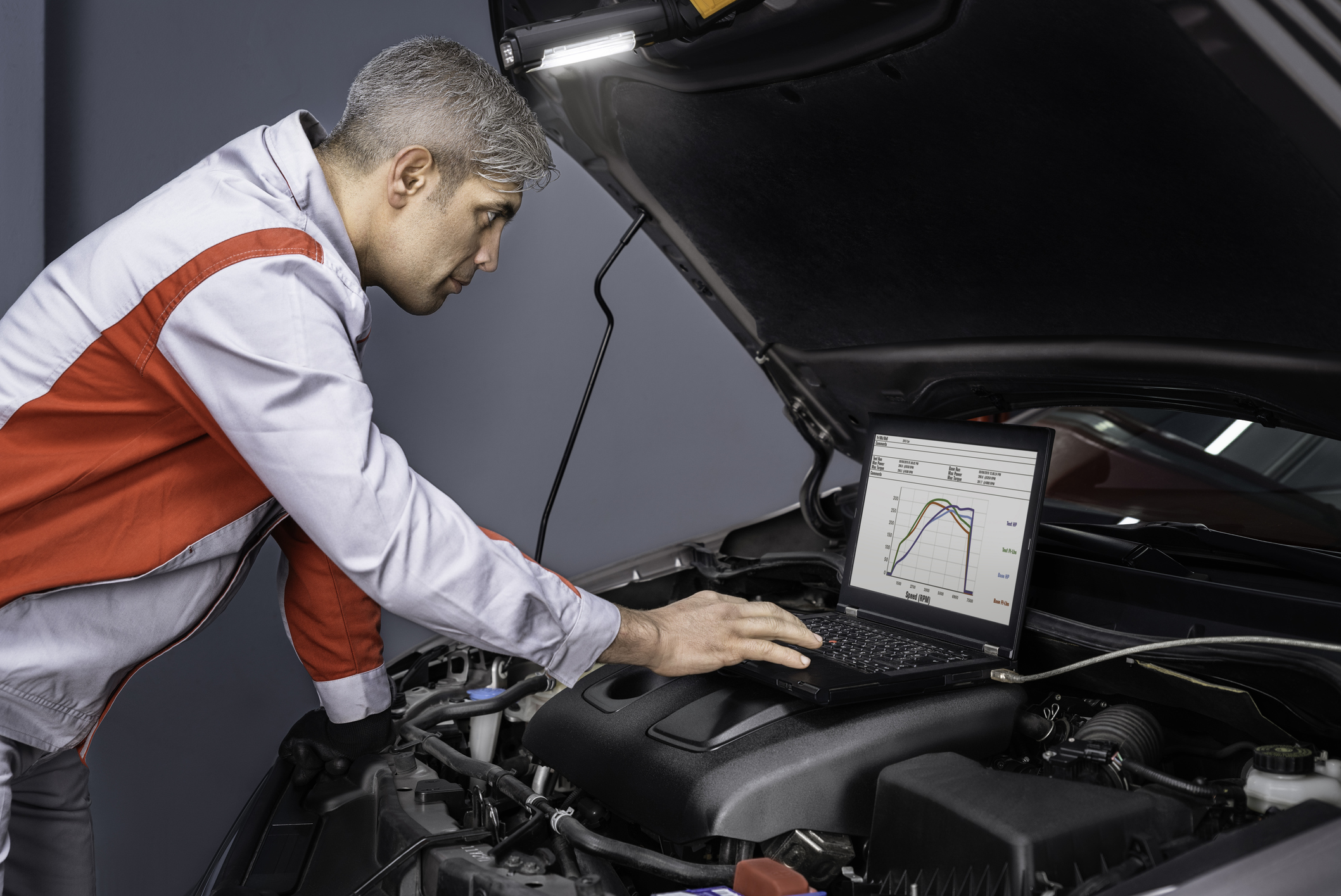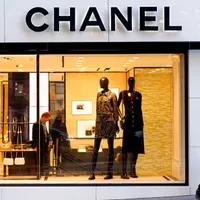Price Hikes on Ikea, Cars and Medication: What the EU Trade Deal Means for Your Wallet
These popular European imports might get pricier. What the US-EU tariff deal means for you.


Profit and prosper with the best of Kiplinger's advice on investing, taxes, retirement, personal finance and much more. Delivered daily. Enter your email in the box and click Sign Me Up.
You are now subscribed
Your newsletter sign-up was successful
Want to add more newsletters?

Delivered daily
Kiplinger Today
Profit and prosper with the best of Kiplinger's advice on investing, taxes, retirement, personal finance and much more delivered daily. Smart money moves start here.

Sent five days a week
Kiplinger A Step Ahead
Get practical help to make better financial decisions in your everyday life, from spending to savings on top deals.

Delivered daily
Kiplinger Closing Bell
Get today's biggest financial and investing headlines delivered to your inbox every day the U.S. stock market is open.

Sent twice a week
Kiplinger Adviser Intel
Financial pros across the country share best practices and fresh tactics to preserve and grow your wealth.

Delivered weekly
Kiplinger Tax Tips
Trim your federal and state tax bills with practical tax-planning and tax-cutting strategies.

Sent twice a week
Kiplinger Retirement Tips
Your twice-a-week guide to planning and enjoying a financially secure and richly rewarding retirement

Sent bimonthly.
Kiplinger Adviser Angle
Insights for advisers, wealth managers and other financial professionals.

Sent twice a week
Kiplinger Investing Weekly
Your twice-a-week roundup of promising stocks, funds, companies and industries you should consider, ones you should avoid, and why.

Sent weekly for six weeks
Kiplinger Invest for Retirement
Your step-by-step six-part series on how to invest for retirement, from devising a successful strategy to exactly which investments to choose.
There's a lot happening with President Donald Trump's tariffs this week as countries scramble to make deals ahead of the August 1 deadline. One of the latest trade agreements reached was with the European Union.
While the agreement isn't finalized, the U.S. and EU announced a framework deal that laid out the basics of what the trading partners' agreement.
The biggest takeaways for U.S. consumers include a baseline 15% tariff rate across all European products imported into the United States, with a handful of exceptions.
From just $107.88 $24.99 for Kiplinger Personal Finance
Become a smarter, better informed investor. Subscribe from just $107.88 $24.99, plus get up to 4 Special Issues

Sign up for Kiplinger’s Free Newsletters
Profit and prosper with the best of expert advice on investing, taxes, retirement, personal finance and more - straight to your e-mail.
Profit and prosper with the best of expert advice - straight to your e-mail.
Some of those exceptions have already been agreed to. Most notably for consumers: Certain generic drugs will be exempt from the tariffs. Many others, including wine and spirits, are still up in the air.
Europe is a major source of pharmaceuticals, cars and other consumer goods for the United States. About 60% of prescription drugs in the United States are imported from Europe, according to Reuters. Some of the most popular luxury vehicles, including Audi and Porsche, are also European.
The U.S. also imports a smattering of other products from Europe, ranging from Ikea furniture to luxury apparel and accessories. Here are some of the most noticeable ways tariffs will impact your wallet after the U.S.-EU trade deal.
What products will face tariffs under Trump's trade deal with the EU?

Right now, the framework U.S.-EU trade deal includes a 15% baseline tariff, which is lower than the 30% rate threatened earlier but, in certain cases, higher than the rates that had been in place for some imports.
Here's how tariff policy will change under the deal for some of the most popular European imports.
Prescription medications
The EU is a key source of major drugs such as Wegovy, Ozempic, Keytruda, Gardasil 9 and countless others. As a consumer, however, you might not notice the price hike if your insurance covers the medications you take.
It's also easier for drug manufacturers (as compared with, say, car manufacturers) to shift production to the United States quickly. Even if you're paying out of pocket, the price increase could be temporary if the manufacturer behind your medications plans to establish or expand stateside production.
While some generic drugs will be exempt, it's not known yet which ones.
European cars and car parts
Audi, BMW, Mercedes-Benz, Volkswagen and other European carmakers will see the 27.5% tariff they currently face drop to the 15% baseline rate.
However, since prices today still don't fully reflect the new tariffs, you're still likely to see a price jump at the dealership going forward. Just how much car prices go up with tariffs will vary by manufacturer.
You should also brace for higher repair costs, too. That, in turn, could trigger a spike in car insurance premiums as insurers compensate for those rising costs.
European furniture
The most widely recognizable European furniture brand is probably Ikea, but there are a number of high-end luxury furniture makers in Europe that will also be subject to the 15% baseline tariff. That means consumers at all price points are likely to see costs go up to furnish their homes.
Luxury items
Europe is home to such popular luxury brands as Prada, Burberry, Louis Vuitton, Chanel and many others. While the apparel, accessories and other items you buy from these brands will be subject to tariffs, you might not see that in the price tag.
Luxury brands already have profit margins as high as 80%, so they might be more willing to eat the tariffs than brands with thinner margins.
Earning cash back on every purchase can help put a little of that money from tariff price hikes back in your pocket. See Kiplinger's top credit card picks for online shopping, powered by Bankrate. Advertising disclosure.
Shoppers will also be indirectly impacted by other tariffs, such as the 50% tariff on steel and aluminum that's staying in place and the baseline tariff impacting machinery and certain raw materials.
While you're probably not buying factory machinery or raw materials yourself, the higher cost of those materials could result in a higher price tag on the products that are made with them.
What you should do after the EU trade agreement

For the most part, you probably won't see too much of a difference in your budget unless you had plans to buy a European car or shop at Ikea. With that said, it's the goods that still hang in the balance that you want to watch.
Plan ahead for your medications
If you pay out of pocket for any prescription medications, you have two options. One is to ask your doctor to write you a prescription for a few months in advance so you can stock up before prices go up.
The other is to switch any name brand drugs to their generic counterparts. Generic drugs are already cheaper than name brand drugs, and some are exempt from the tariffs, which would make the price difference even more noticeable.
However, it isn't yet clear which specific generics will be exempt. You might want to wait to discuss any changes with your doctor after the details of the trade deal are finalized.
Stock up on European products whose future is still uncertain
Check the source of your favorite foods and other products to see which ones hail from Europe. You might want to stock up on these before tariffs raise prices where possible.
If you're a wine connoisseur, for example, pick up a couple of extra bottles of your favorite European wines this weekend. While wine and spirits could end up on the exemption list, the first half of 2025 has shown us that policy can shift quickly and dramatically.
If wines don't make the cut, they'll face the same 15% tariffs that other non-exempt European goods do. Profit margins in the wine industry are already razor thin, so any bump in cost is likely to be passed directly to consumers.
Grabbing a few extra of your favorites at their current price lets you delay the pain of any potential price hike. If wines do make the exemption list, you've already got bottles on hand to celebrate the good news.
The same goes for any other European products you love, such as perfume and makeup. These are unlikely to be given an exemption. Grabbing an extra bottle of your favorite perfume or your favorite European cosmetics now might be a good idea.
Get a tune up on your European car

You might have already bought a new car earlier this year when Trump first started levying tariffs — or you might not be in the market for one right now. Keep in mind that the tariffs apply to car parts, not just cars.
If there's a repair you've been putting off or your car is due for a general tune-up, get that done sooner rather than later.
Don't skimp on any recommended repairs your mechanic suggests. Getting worn parts replaced now, even if they could last a few extra months, can help you avoid higher repair costs later.
Add shopping to your European travel plans
The tariffs agreed to in the new trade deal aren't high enough to warrant booking a flight to Europe to do your Ikea shopping or fill your prescriptions.
However, if you're planning a trip anyway, it does mean packing an extra bag to stock up on your favorite European brands while you're there could be worth your while.
Currently, a U.S. traveler can bring up to $800 worth of goods purchased in Europe home in their luggage duty-free. When traveling with your spouse or family, you can combine the $800 personal exemption of each person into one joint declaration.
Seven Corners offers travel insurance plans with trip protection, emergency medical coverage and around-the-clock travel assistance for both domestic and international adventures.
Key takeaways from the U.S.-EU trade deal
There are still a lot of details to be worked out in the trade deal between the United States and the European Union.
So far, the framework deal is enough to avert the worst-case scenario of 30% tariffs that Trump had threatened earlier.
While prices across many European goods are still likely to increase, even with the lower 15% rate, they won't spike as much as they could have.
Related content
Profit and prosper with the best of Kiplinger's advice on investing, taxes, retirement, personal finance and much more. Delivered daily. Enter your email in the box and click Sign Me Up.

Rachael Green is a personal finance eCommerce writer specializing in insurance, travel, and credit cards. Before joining Kiplinger in 2025, she wrote blogs and whitepapers for financial advisors and reported on everything from the latest business news and investing trends to the best shopping deals. Her bylines have appeared in Benzinga, CBS News, Travel + Leisure, Bustle, and numerous other publications. A former digital nomad, Rachael lived in Lund, Vienna, and New York before settling down in Atlanta. She’s eager to share her tips for finding the best travel deals and navigating the logistics of managing money while living abroad. When she’s not researching the latest insurance trends or sharing the best credit card reward hacks, Rachael can be found traveling or working in her garden.
-
 Nasdaq Leads a Rocky Risk-On Rally: Stock Market Today
Nasdaq Leads a Rocky Risk-On Rally: Stock Market TodayAnother worrying bout of late-session weakness couldn't take down the main equity indexes on Wednesday.
-
 Quiz: Do You Know How to Avoid the "Medigap Trap?"
Quiz: Do You Know How to Avoid the "Medigap Trap?"Quiz Test your basic knowledge of the "Medigap Trap" in our quick quiz.
-
 5 Top Tax-Efficient Mutual Funds for Smarter Investing
5 Top Tax-Efficient Mutual Funds for Smarter InvestingMutual funds are many things, but "tax-friendly" usually isn't one of them. These are the exceptions.
-
 One of the Most Powerful Wealth-Building Moves a Woman Can Make: A Midcareer Pivot
One of the Most Powerful Wealth-Building Moves a Woman Can Make: A Midcareer PivotIf it feels like you can't sustain what you're doing for the next 20 years, it's time for an honest look at what's draining you and what energizes you.
-
 I'm a Wealth Adviser Obsessed With Mahjong: Here Are 8 Ways It Can Teach Us How to Manage Our Money
I'm a Wealth Adviser Obsessed With Mahjong: Here Are 8 Ways It Can Teach Us How to Manage Our MoneyThis increasingly popular Chinese game can teach us not only how to help manage our money but also how important it is to connect with other people.
-
 Looking for a Financial Book That Won't Put Your Young Adult to Sleep? This One Makes 'Cents'
Looking for a Financial Book That Won't Put Your Young Adult to Sleep? This One Makes 'Cents'"Wealth Your Way" by Cosmo DeStefano offers a highly accessible guide for young adults and their parents on building wealth through simple, consistent habits.
-
 My Spouse and I Are Saving Money for a Down Payment on a House. Which Savings Account is the Best Way to Reach Our Goal?
My Spouse and I Are Saving Money for a Down Payment on a House. Which Savings Account is the Best Way to Reach Our Goal?Learn how timing matters when it comes to choosing the right account.
-
 We're 78 and Want to Use Our 2026 RMD to Treat Our Kids and Grandkids to a Vacation. How Should We Approach This?
We're 78 and Want to Use Our 2026 RMD to Treat Our Kids and Grandkids to a Vacation. How Should We Approach This?An extended family vacation can be a fun and bonding experience if planned well. Here are tips from travel experts.
-
 My First $1 Million: Retired From Real Estate, 75, San Francisco
My First $1 Million: Retired From Real Estate, 75, San FranciscoEver wonder how someone who's made a million dollars or more did it? Kiplinger's My First $1 Million series uncovers the answers.
-
 To Love, Honor and Make Financial Decisions as Equal Partners
To Love, Honor and Make Financial Decisions as Equal PartnersEnsuring both partners are engaged in financial decisions isn't just about fairness — it's a risk-management strategy that protects against costly crises.
-
 Top 5 Career Lessons From the 2026 Winter Olympics (So Far)
Top 5 Career Lessons From the 2026 Winter Olympics (So Far)Five lessons to learn from the 2026 Winter Olympics for your career and finances.

